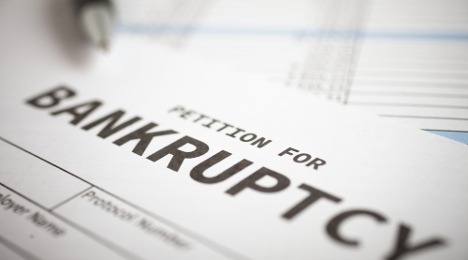Potential next steps as Takata bankruptcy reports surface

By subscribing, you agree to receive communications from Auto Remarketing and our partners in accordance with our Privacy Policy. We may share your information with select partners and sponsors who may contact you about their products and services. You may unsubscribe at any time.
CARY, N.C. –
As advocates say “hundreds of thousands” of drivers are behind the wheel of vehicles with defective airbags in places like Riverside County in California, multiple online media reports surfaced this week that the maker of those defective airbags — Takata — is expected to file for bankruptcy this month.
The development didn’t necessarily surprise analysts from Kelley Blue Book and Autotrader, but they pondered the question about how automakers and dealerships move forward with this recall campaign if Takata is out of the picture.
“This is the largest, most expensive recall in the history of the automotive industry. Takata’s bankruptcy was almost a foregone conclusion, but the need to replace tens of millions of airbags remains," said Karl Brauer, executive publisher for Autotrader and Kelley Blue Book.
“It’s likely that process will continue throughout Takata’s bankruptcy proceedings and will take years to complete. Its cost will reach far beyond Takata, weighing on the financials of nearly 20 automakers,” Brauer continued.
“It’s a textbook case of what happens when a small number of suppliers service the entire global auto industry. In theory that system saves everyone money, but when a problem like this flares, there’s no escaping the impact,” he went on to say.
Minimizing that impact is the goal of organizations like Airbag Recall: Southern California, a coalition launched this past March in Los Angeles. The aim is to educate communities across southern California about the life-threatening danger posed by unrepaired, recalled airbags.
Subscribe to Auto Remarketing to stay informed and stay ahead.
By subscribing, you agree to receive communications from Auto Remarketing and our partners in accordance with our Privacy Policy. We may share your information with select partners and sponsors who may contact you about their products and services. You may unsubscribe at any time.
The group’s latest effort was concentrated in Riverside County, which officials said has an especially high risk due to high temperatures and humidity that exacerbate the defect in the airbag inflator.
“Less than one year ago, a member of our community lost her life when the recalled airbag in her vehicle exploded like a grenade, spraying sharp, metal shrapnel at her face, neck and chest,” Riverside mayor Rusty Bailey said in a news release. “We must work together to address the hundreds of thousands of vehicles that contain defective airbags in Riverside and prevent additional tragedies from occurring on our roadways.”
Michelle Krebs, executive analyst for Autotrader, pinpointed what industry segment must step up now in order to quell concerns that individuals like Bailey are raising.
“Ultimately the responsibility for the Takata airbag recalls rests with the automakers who must figure out how to replace the flawed airbags,” Krebs said. “Presumably, Takata will continue manufacturing airbags throughout the bankruptcy proceedings.
“Longer term, the question is whether Takata, with a new owner, can rebuild trust with automakers to build future business. That will be a daunting task,” she continued. “A plus for Takata is the fact that the number of airbag suppliers has dwindled to a mere few.”
Akshay Anand, executive analyst for Kelley Blue Book, made a couple of additional points about the matter.
“Replacing defective airbags is still the most important issue for manufacturers on the Takata front, and the most important issue for this story as a whole,” Anand said. Beyond that, Takata faces a massive uphill climb, both from a financial and brand image perspective.
“Now that the company’s credibility has been shot, it’s possible the brand may never recover and get back to where it once was,” Anand went on to say.


